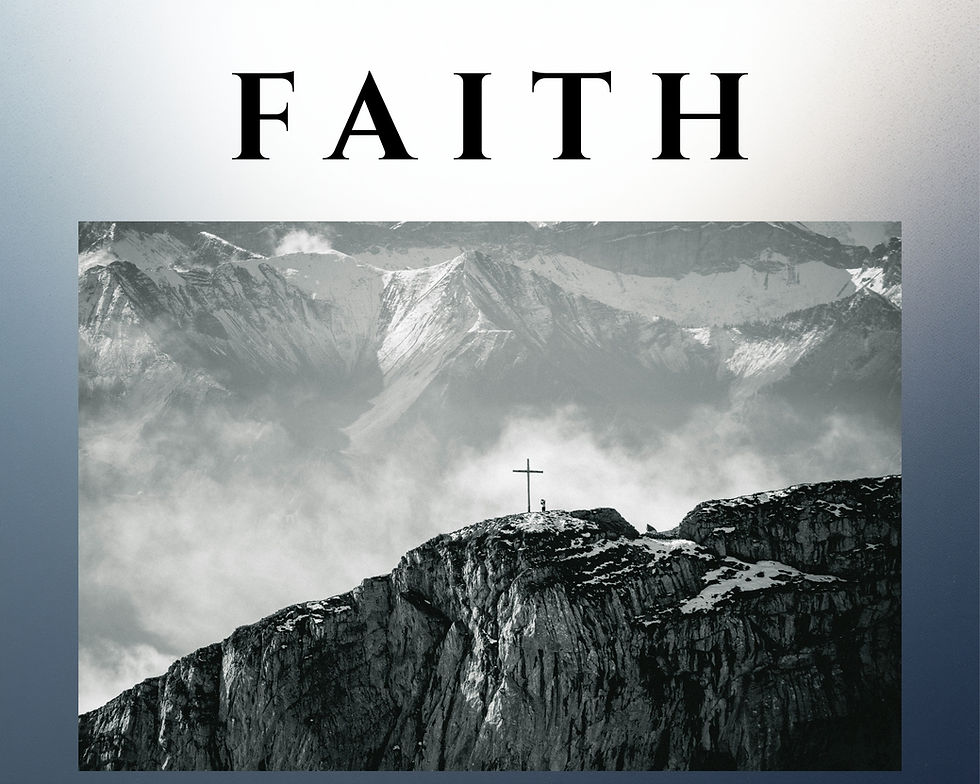Coup de Grȃce
- fathermark

- Mar 25, 2022
- 4 min read

Okay, I admit it. I'm a bit of a sap for seeing pictures of grace in all sorts of places. Take for instance the ending of the movie version of The Phantom of the Opera. Some of our family watched it again recently. I hadn't seen it for fifteen years and had forgotten how, um, well... how haunting it all was.
Amid all the vain splendor of the early-1900s Paris opera house with its pomp and sensuality, there lived a creature of darkness that was eaten up with bitterness and despair because he had never been loved. He had been an object of scorn and ridicule, a freak or a monster or worse in the eyes of those who saw him due to a hideous deformity of face. Even his mom couldn't bear to look at him and turned him away and he ended up at the circus where people paid to recoil from him in horror. He finds refuge when a singer takes him from the circus and hides him in the underground labyrinth of the opera house.
The movie is based on the 1910 novel by Gaston Leroux, which told a tale merging local ghost stories and all-too-real disasters of the actual Paris opera house, Palais Garnier. There really was a chandelier accident and a fire, and there really was an underground lake beneath the opera.
In the 2004 movie version, the monster-child hears the prayers of the orphaned Christine, also living in the opera house, as she prays to her father for guidance. Christine remembers her dad promising that an angel of music would guide her once he was gone. The hidden listener is captivated by her beautiful voice and deceitfully adopts the persona of the angel of music to tutor Christine in the arts of the opera, speaking to her from the shadows through the air vents and from the undercroft of Palais Garnier. This mystical relationship continues for years until the Phantom of the Opera arranges circumstances so that Christine sings the lead to a packed-out house.
Most of you have seen the movie or the musical, so I won't belabor the details of the story. The Phantom's own song reveals that he sees himself as a gargoyle of hell secretly longing for heaven, an ugly monster in an agony of longing for beauty. Christine becomes the embodiment of his desires and he attempts to manipulate her into loving him and thus saving his soul from its wretched estate.
But love cannot be coerced or demanded. It must be freely given. This is, of course, a big part of the Christian understanding of God's gift of freedom of will to us: that we might, of our own volition, choose to love Him.
The coup de grȃce in the movie comes near the end when the Phantom has stolen away Christine publicly and is being pursued by the police and by Raoul, Christine's handsome and wealthy suitor. Raoul catches up to the Phantom in his underground lair, but the Phantom gets a rope around his neck and ties him to a gate and threatens to kill him unless Christine swears to love him instead.
Suddenly, as if wakened from a horrifying dream, Christine's countenance changes, and with something almost divine lighting her face she sings to the Phantom, “Pitiful creature of darkness, what kind of life have you known...” She then prays for the grace to show him that he is not really alone and she kisses him – not a fearful, coerced or hate-filled kiss, but a genuine kiss of compassion and love. The Phantom's defenses are overcome, his hatred shattered, and the love he has just experienced softens the hardness of his heart. He frees Raoul and lets him and Christine leave to start their life together.
Sentimental sap, right? I know, but I couldn't help but think of something in CS Lewis' The Great Divorce. In Lewis' imagined encounter in heaven with his literary mentor, George MacDonald, MacDonald teaches him of the difference between the action of pity and the passion of pity.
[MacDonald] “The action of Pity will live for ever: but the passion of Pity will not. The passion of Pity, the Pity we merely suffer, the ache that draws men to concede what should not be conceded and to flatter when they should speak truth, the pity that has cheated many a woman out of her virginity and many a statesman out of his honesty – that will die. It was used as a weapon by bad men against good ones: their weapon will be broken.”
[Lewis] “And what is the other kind – the action?”
[MacDonald] “It's a weapon on the other side. It leaps quicker than light from the highest place to the lowest to bring healing and joy, whatever the cost to itself. It changes darkness into light and evil into good. But it will not, at the cunning tears of Hell, impose on good the tyranny of evil.”
So that moment in the movie was a picture of the action of Pity. It was a picture of love conquering while standing in the gates of hell. It was a picture of the Son of God, the Beauty of the Infinite and the Holy, leaving the Father's side in glory to descend to the darkness and madness of the hell we had created to kiss us with the Love of heaven.
And that my friends, ain't no sentimental sap.






Comments